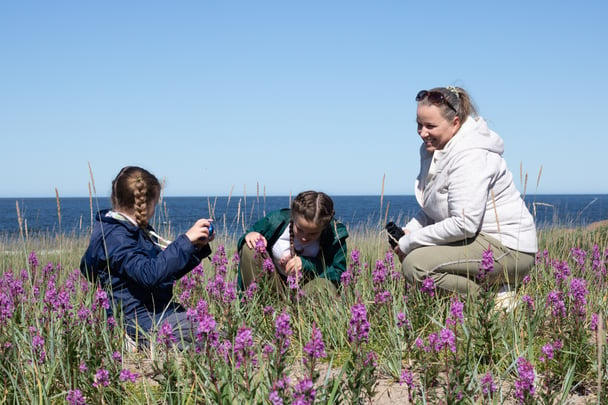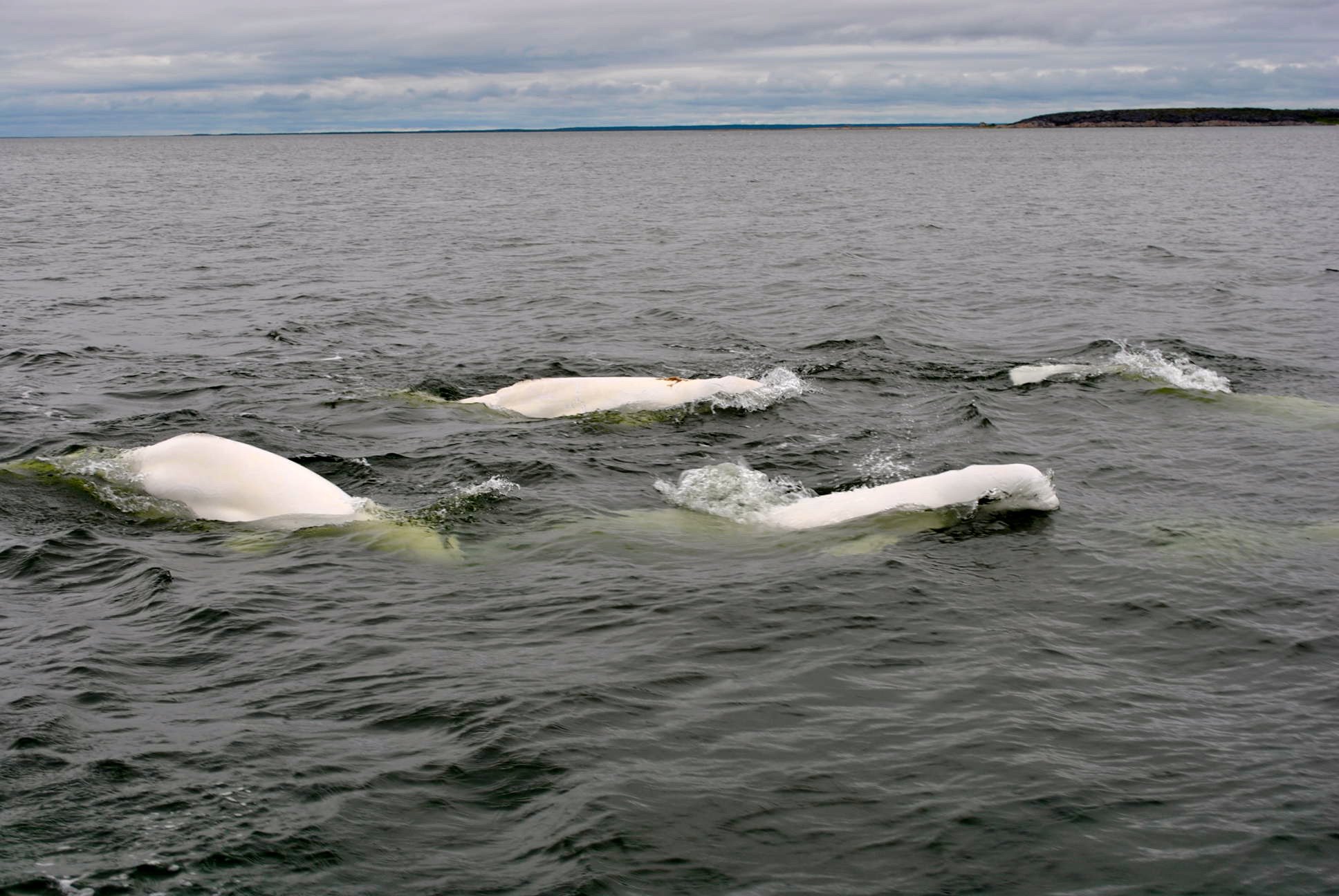Why A Sustainability Professional is Something Your business should consider
Being a Certified B Corporation™ is similar to building a house. You don’t just put up four walls and a roof and hope for the best! You have to build a house with a solid foundation and quality materials then continue with regular maintenance and inspections to ensure the longevity of the structure. Building your dream home is achievable if you properly prepare with thorough research and guidance from experienced professionals. Taking the time to consult with professionals is important as you build a plan that is assembled in cohesive stages, so you can build knowing your house will not collapse due to any disruptions. In the realm of corporate sustainability, a company should consider hiring a sustainability professional to make sure they are building a cohesive strategy that includes the necessary foundational elements.
This year Frontiers North Adventures will be applying for recertification with B Corp a process that will be lead by our new Sustainability Analyst. Since the role of a Sustainability Analyst is a relatively new position in the workforce, it is likely many people are unfamiliar with what they do for an organization. With that in mind, we sat down with our sustainability analyst to learn a bit more about what the job entails and how they will be helping us achieve our sustainability goals.
As a Sustainability Analyst what do you Do?
A sustainability analyst takes a deep dive into all the operations of the company, monitoring things like energy and water usage to corporate policy to ensure compliance. I also have the responsibility of researching best practices for our strategy and being the catalyst to bring ideas into actionable plans for our company.
-1.jpg?width=608&height=401&name=2020_Asset_Abby_Matheson_1201%20(1)-1.jpg)
©Abby Matheson
What was Your First Task after starting at Frontiers North?
You have probably noticed by now that a big part of a sustainability analyst’s job is conducting research. So it probably doesn't surprise anybody, that I started by taking a deep dive into researching everything about Frontiers North Adventures - no stone was left unturned and transparency was at the forefront of my mind!
To use the analogy of building a house; I think about blueprints. Similarly to how blueprints are used to identify all of the details of a building, including everything from each closet to each electrical panel, a Sustainability Analyst will complete a thorough audit of the organization, providing essentially a blueprint for the company. This audit is done in a number of different ways, from tracking old receipts to asking questions to relevant employees.
My goal as a Sustainability Analyst is to encourage the team to consistently seek to be better and always look for opportunities to integrate sustainability into their projects. I try to remind everyone, that being a B Corp is a commitment to continuous improvement and doesn't end with the completion of any one task. A useful tool I use is the B Corp framework. Companies can use this framework as guidance in their certification or recertification process, as well as their day-to-day operations. Think of the B Corp framework as a constant, continuous barometer. Like how building codes set the minimum standard to which a new house can be built, the B Corp framework acts as a guide to set your goals and strive towards your continuous improvement.
.jpg?width=6000&height=4000&name=DSC00797%20(1).jpg)
©Frontiers North Adventures
What Goals and Projects Have You Been Working on Since Starting at Frontiers North Adventures?
I want to emphasize that each B Corp will have specific projects which will vary from business to business. For example, if you’re building a home for a single-family residence the building and maintenance of it will be a lot quicker than your neighbour who’s building a home for their multi-generational family. Keeping this in mind, here are some improvements that we are working on at Frontiers North.
- Composting: Our sustainability analyst explains that not all municipalities have composting built into their curbside collection and for some organizations implementing a composting system is an easy short-term project that although is an added expense will greatly reduce waste production. We have implemented a compost program at our Winnipeg office, as our sustainability analyst connected us with the local social enterprise: Compost Winnipeg.
- Reviewing all policies and making necessary updates. Policies allow for clarity and direction among staff and having clearly defined policies make it easier for the team to be invested in sustainability. Often operations are already considering the essentials and just need to have the policy written in a standardized way or adjusted to meet our needs.
- Monitoring the organization's utilities and bills to make sure that your usage is what you think it might be. It might seem obvious, but reviewing bills on a regular basis allows a sustainability analyst to note discrepancies and it is also an opportunity to find areas to focus on and improve upon.
- Maintaining accurate emissions records. Having all of our emissions data in one place allows for year-over-year comparisons to help identify strange fluctuations as well as the opportunity to streamline processes.
- Improving waste management solutions for operations in northern Canada. As we operate our tours in a remote part of the country, it is important to consider how waste management from our operations is being managed.
- Converting our Tundra Buggy® fleet from diesel to EV. Tundra Buggies are the vehicles we use to provide our guests with viewing opportunities for polar bears, other subarctic wildlife and the northern lights. In 2021, we converted our first Tundra Buggy from diesel to electric propulsion and have just added our second operational EV to the fleet this year. Our goal is to fully convert our touring fleet to EV by 2030. You can learn more by clicking here
- Looking forward and asking the question, where do we see ourselves in 5, 10 or 20 years? Once we establish our long-term vision we can build a strategy working backward to our current position. This requires a lot of collaboration and discussion, as well as a good honest look at what we are doing well and what we can improve upon.
- Finally, a project that I am working on is helping our entire team to be always thinking with a mindset of "how can we be better" and never settling for the status quo.

©Alex Cupeiro
What Can You Tell Us About Becoming B Corp Certified and maintaining certification?
I don’t want people to forget that being sustainable is a commitment that can be difficult at times. It’s important not to get deterred, remind yourself and your colleagues not to strive for perfection and instant gratification, everything takes time. Just like starting on your journey to build your dream house would be a daunting task, the same is true with being or becoming a B Corp. Creating a solid foundation will help you to achieve your goals in an attainable manner. It is also good to remember that starting the sustainability journey differs greatly from business to business, as sustainability can mean something different to everyone.
The task of becoming a B Corp can be ambitious and businesses need to apply for recertification every three years, which means they need to continue to maintain the standards provided by B Corp. Some tips I like to give to businesses who are in either the certification or recertification process are:
- Hire a sustainability analyst. We are armed with the knowledge and resources needed to create the supporting documents behind the sustainability claims your company makes. These supporting documents are really important, without charts, tracking and policies it is difficult for any company to support their claims.
- I can’t recommend exploring the B Lab™ if you’re looking for guidance and ideas enough! B Lab is the nonprofit network transforming the global economy to benefit all people, communities and the planet. All B Corps are verified by B Lab to meet high standards of social and environmental performance, transparency and accountability. B Lab provides an in-depth Knowledge Base with resources best practice standards and how to continue to improve, including examples from other B Corps.
- It is important to work with other B Corps, but, also, not to forget about local and regional companies. While it’s great to connect with other B Corp companies, it is important to always be considering local companies as a great way to reduce emissions and build up your surrounding community.
- Be transparent. From the onset, it is important for me, as the sustainability analyst, to be able to have open and honest communication. This transparency allows me to collect information that helps to assess and formulate a plan and in turn to improve the company.
- Break your goals down into manageable projects. Allocating resources and time effectively will help your organization achieve its goals faster. My suggestion is to have SMART (Specific, Measurable, Achievable, Realistic, and Time-Bound) goals to keep your team on track.

©Alex Cupeiro
These are great tips for B Corp businesses, do you have tips for people who aren’t ready to take the B Corp plunge? Tips that help with sustainability in general?
That’s a good point and just because a business isn’t B Corp Certified, it doesn’t mean they can’t be sustainable. Here are my Top 10 Helpful Tips for Sustainability.
- Install low-flow faucets and toilets
- Use energy-efficient appliances
- Make sure the thermostat is programmed properly- tip reduce the temperature when the office is not occupied.
- Raising awareness in recycling and waste management - what goes in the compost, recycling, and trash.
- General reminders of our impact - shutting off lights as you leave the room or making sure the faucet isn’t dripping.
- Pay attention to where you are spending your money- PURCHASE WITH INTENT- look into companies you are doing business with and your suppliers.
- Investing in quality furniture and fixtures, make sure the product matches the usage.
- Lead by example. We’ve implemented composting into the office and plan to extend this initiative to the other tenants of the building in the future.
- Keep in mind that projects in rural and remote areas that are simple in metropolitan areas might be more challenging projects in remote areas.
- Be prepared to face resistance. Change isn't easy; a lot of sustainable practices may seem like common sense when you’re leading the project, however, it could be a brand new idea to someone else.
Any Final Thoughts?
We’re all in this together, it is important that your team knows and understands the intention so they can also be invested. There is an added residual benefit of everyone buying in as we will develop small habits at work and take them home. For example, composting and energy-efficient solutions are things you can implement in your personal life, especially when you’re already doing them in the workplace.
Don’t be afraid to ask for help! Seek help from outside companies when you need it. For example, most electrical companies will do an energy audit for you and most will provide tips for small changes you can make to increase your energy efficiency. If you’re not an expert in an area, be honest with yourself and seek out someone who is. It may be an added cost, but over the course of time getting it down correctly will often save you money and in the short term it saves you from migraines.

©Brandi Hayberg
Lastly, what are you most looking forward to experiencing with your new job?
We have two trips that focus on conservation, Conservation Journey: Polar Bears and Conservation Journey: Beluga Whales. I have heard so many people talk about summer in Churchill being an undiscovered gem, teeming with wildflowers, birds, and beautiful beluga whales! Maybe it’s just that I was never able to fulfill a childhood dream of becoming a marine biologist, but I really want to see those beluga whales!
Learn MoRE About Our Conservation Journey: Beluga Whales Trip
Header Image: ©Alex Cupeiro
